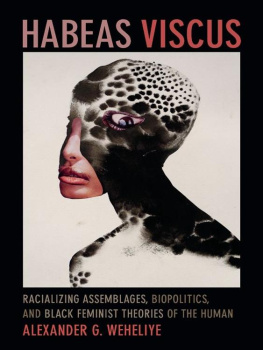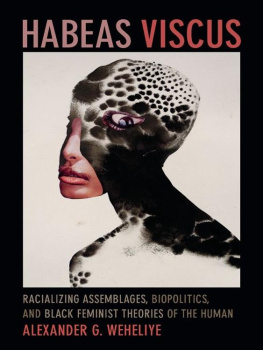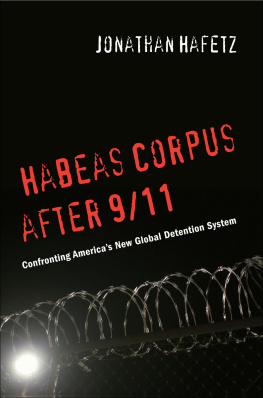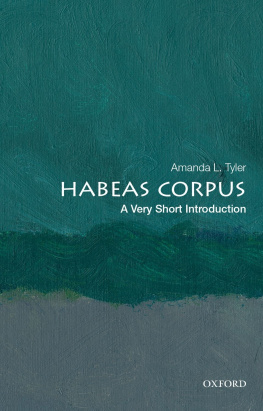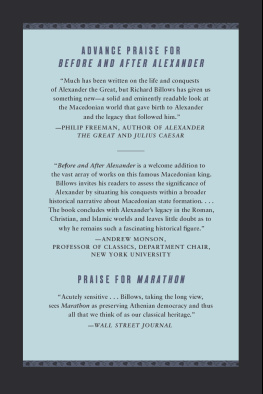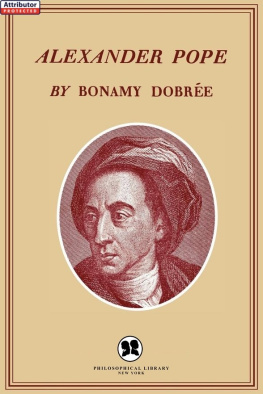Alexander G. Weheliye - Habeas Viscus
Here you can read online Alexander G. Weheliye - Habeas Viscus full text of the book (entire story) in english for free. Download pdf and epub, get meaning, cover and reviews about this ebook. year: 2014, publisher: Duke University Press, genre: Politics. Description of the work, (preface) as well as reviews are available. Best literature library LitArk.com created for fans of good reading and offers a wide selection of genres:
Romance novel
Science fiction
Adventure
Detective
Science
History
Home and family
Prose
Art
Politics
Computer
Non-fiction
Religion
Business
Children
Humor
Choose a favorite category and find really read worthwhile books. Enjoy immersion in the world of imagination, feel the emotions of the characters or learn something new for yourself, make an fascinating discovery.
- Book:Habeas Viscus
- Author:
- Publisher:Duke University Press
- Genre:
- Year:2014
- Rating:4 / 5
- Favourites:Add to favourites
- Your mark:
- 80
- 1
- 2
- 3
- 4
- 5
Habeas Viscus: summary, description and annotation
We offer to read an annotation, description, summary or preface (depends on what the author of the book "Habeas Viscus" wrote himself). If you haven't found the necessary information about the book — write in the comments, we will try to find it.
Habeas Viscus — read online for free the complete book (whole text) full work
Below is the text of the book, divided by pages. System saving the place of the last page read, allows you to conveniently read the book "Habeas Viscus" online for free, without having to search again every time where you left off. Put a bookmark, and you can go to the page where you finished reading at any time.
Font size:
Interval:
Bookmark:
Racializing Assemblages, Biopolitics, and Black Feminist Theories of the Human
ALEXANDER G. WEHELIYE
Duke University Press
Durham and London
2014
2014 Duke University Press
All rights reserved
Printed in the United States of America
on acid-free paper
Designed by Amy Ruth Buchanan
Typeset in Quadraat by Copperline Book Services, Inc.
Library of Congress Cataloging-in-Publication Data
Weheliye, Alexander G., 1968
Habeas viscus : racializing assemblages, biopolitics, and black feminist theories of the human / Alexander G. Weheliye.
pages cm
Includes bibliographical references and index.
ISBN 978-0-8223-5691-2 (cloth : alk. paper)
ISBN 978-0-8223-5701-8 (pbk. : alk. paper)
1. African AmericansStudy and teaching. 2. BlacksStudy and teaching. 3. Feminist theory. 4. Spillers, Hortense J. 5. Wynter, Sylvia. I. Title.
E184.7.W43 2014
305.4201dc23
2014000761
Cover art: Wangechi Mutu, Untitled, 2002. Collage, ink on paper, 12 9 inches. Courtesy of the artist.
ISBN 978-0-8223-7649-1 (electronic)
For Aaliya and Marlena Weheliye
I thank the following individuals, who either read or discussed parts of the book with me, for their valuable insights: Richard Iton, Ruth Wilson-Gilmore, Fred Moten, Saidiya Hartman, Dylan Rodriguez, Katherine McKittrick, Andrea Smith, Alondra Nelson, Dwight McBride, Hortense Spillers, Jodi Kim, John Keene, Nicola Laur Al-Samarai, Joseph Chaves, Ulla Haselstein, Ewa Ziarek, Annette Schlichter, Anna Parkinson, Samuel Weber, and the anonymous readers at Duke University Press. Many thanks also to the participants in the UCHRI research group Between Life and Death: Necropolitics in the Era of Late Capitalism, as well as the audiences at Reading Race Today at Brown University, Critical Ethnic Studies Conference at UC Riverside, the Program in American Studies and Ethnicity at USC, the John F. Kennedy Institute for American Studies at the Free University Berlin, the English Department at University of WisconsinMadison, the annual meetings of the American Studies and Modern Language Association, the Comparative Literature Department at UC Irvine, and the faculty colloquium in the English Department at Northwestern for allowing me to test out the ideas of the book and for their valuable feedback. Of course, I am extremely thankful for Sylvia Wynter's and Hortense Spillers's brilliance in charting the paths of future inquiry, of what needs to be done, for us.
While producing Habeas Viscus, I learned a great deal from the graduate students in my seminars Man and Animal, Terror and Freedom, Post-soul Blackness, and Expressive Arts and Culture, especially Rickey Fayne, Brittnay Proctor, Cecilio Cooper, Chad Benito Infante, Mohwanah Fetus, Jared Richardson, Pablo Lopez-Oro, Sam Tenorio, La TaSha Levy, and Keeanga Taylor. Special thanks to Nora Eltahawy for proofreading an earlier version of the manuscript, to Cecilio Cooper and Christine Goding for preparing the index, and to Ken Wissoker, Jade Brooks, and Christine Choi at Duke University Press for their work in bringing this book to publication.
Many thanks to my colleagues in the Department of African American Studies at Northwestern: John Marquez, Celeste Watkins-Hayes, Sherwin Bryant, Mary Pattillo, E. Patrick Johnson, Nitasha Sharma, Sylvester Johnson, Barnor Hesse, Martha Biondi, Sandra Richards, Darlene Clark Hine, Michelle Wright, and Tracy Vaughn. Much gratitude also goes out to Marjorie McDonald, Suzette Denose, and Kathy Daniels. Parts of the book have been published previously in the following journals: an earlier and shorter incarnation of appeared as Pornotropes in Journal of Visual Culture 7.1 (April 2008), while other sections of Habeas Viscus incorporate materials from my essay After Man, which appeared in American Literary History 20.12 (spring 2008).
Finally, I owe immense gratitude to my family: Barbara Christine and Nur Ahmed Weheliye, Samatar, Ayaan, and Asli Weheliye, Daud Ahmed and Qadiiya Isaac, Asli-Juliya Weheliye, Jan Wiklund, Safiya Weheliye, Said Ahmed, Eedo Biod and Eedo Safia, as well as my friends Patrick Hosp, Roya Djaberwandi, Arndt Weisshuhn, Aki Hanne, Andrea Wiedermann, Christian Schwabe, Jamila Al-Habash, Patricia Bembo, Manfred Bertelmann, and Sonja Boerdner.
This book is dedicated to my daughters, Marlena and Aaliya.
On the one hand, Habeas Viscus is concerned with rectifying the shortcomings of bare life and biopolitics discourse, and on the other hand, it suggestsfrom the vantage point of black studiesalternate ways of conceptualizing the place of race, or racializing assemblages, within the dominion of modern politics. Focusing on the layered interconnectedness of political violence, racialization, and the human, I contend that the concepts of bare life and biopolitics, which have come to dominate contemporary scholarly considerations of these questions, are in dire need of recalibration if we want to understand the workings of and abolish our extremely uneven global power structures defined by the intersections of neoliberal capitalism, racism, settler colonialism, immigration, and imperialism, which interact in the creation and maintenance of systems of domination; and dispossession, criminalization, expropriation, exploitation, and violence that are predicated upon hierarchies of racialized, gendered, sexualized, economized, and nationalized social existence.the violence, subjection, exploitation, and racialization that define the modern human.
Building on Hortense Spillers's distinction between body and flesh and the writ of habeas corpus, I use the phrase habeas viscusYou shall have the fleshon the one hand, to signal how violent political domination activates a fleshly surplus that simultaneously sustains and disfigures said brutality, and, on the other hand, to reclaim the atrocity of flesh as a pivotal arena for the politics emanating from different traditions of the oppressed. The flesh, rather than displacing bare life or civil death, excavates the social (after)life of these categories: it represents racializing assemblages of subjection that can never annihilate the lines of flight, freedom dreams, practices of liberation, and possibilities of other worlds. Nonetheless, genres of the human I discuss in Habeas Viscus ought not to be understood within the lexicons of resistance and agency, because, as explanatory tools, these concepts have a tendency to blind us, whether through strenuous denials or exalted celebrations of their existence, to the manifold occurrences of freedom in zones of indistinction. As modes of analyzing and imagining the practices of the oppressed in the face of extreme violencealthough this is also applicable more broadlyresistance and agency assume full, self-present, and coherent subjects working against something or someone. Which is not to say that agency and resistance are completely irrelevant in this context, just that we might come to a more layered and improvisatory understanding of extreme subjection if we do not decide in advance what forms its disfigurations should take on.
When I initially began thinking about this book I wondered about the very basic possibility of agency and/or resistance in extreme circumstances such as slave plantations or concentration camps. The initial inquiry, then, led me to broader methodological questions facing minority discourse: Why are formations of the oppressed deemed liberatory only if they resist hegemony and/or exhibit the full agency of the oppressed? What deformations of freedom become possible in the absence of resistance and agency? I don't intend for Habeas Viscus
Font size:
Interval:
Bookmark:
Similar books «Habeas Viscus»
Look at similar books to Habeas Viscus. We have selected literature similar in name and meaning in the hope of providing readers with more options to find new, interesting, not yet read works.
Discussion, reviews of the book Habeas Viscus and just readers' own opinions. Leave your comments, write what you think about the work, its meaning or the main characters. Specify what exactly you liked and what you didn't like, and why you think so.

